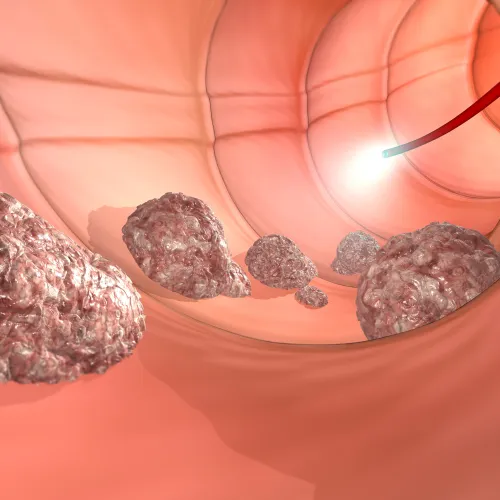Outpatient Facility Coding Alert
It's Not Just Wound Care—It's HBO

Question: I work for a hospital system that has an outpatient wound care center. I understand that Hyperbaric Oxygen (HBO) therapy services are likely to attract auditors. How can I help my facility bulletproof our HBO claims?
Michigan Subscriber
Answer: You are absolutely correct to be watching HBO claims carefully for medical necessity and documentation issues. According to Linda Martien, CPC, COC, CPMA, AAPC Fellow, HBO is an "advanced modality" that wound care providers sometimes use when other treatments have failed. High concentrations of oxygen can encourage wounds to heal, so providers sometimes put wound care patients into pressurized chambers to breathe 100 percent oxygen. You may have heard providers refer to HBO therapy as "dives" because high-pressure atmosphere inside the chamber is similar to what a deep-sea diver experiences. Patients typically stay in the chamber for several hours, and the oxygen is interspersed by intervals of breathing regular air to prevent oxygen toxicity and seizures, Martien explained to a class of wound care coders at the American Academy of Professional Coders Regional Conference in Salt Lake City.
The HHS Office of Inspector General recently added HBO to its 2017 Work Plan, pointed out Pam Brooks, MHA, COC, PCS, CPC, AAPC Fellow, coding manager at Wentworth-Douglass Hospital in Massachusetts and also an instructor at the conference. Brooks alerted attendees to National Coverage Determination (NCD) 20.29, which lists the conditions that Medicare covers - as well as the conditions it doesn't cover. The NCD specifies that wounds must be evaluated every 30 days during administration of HBO therapy, Brooks told the class. If measurable signs of healing aren't demonstrated and documented within 30 days, continued treatment won't be covered. Check your Medicare carrier for more specific guidelines regarding HBO coverage in your area, Martien advised her class.
Important: Topical HBO is considered investigational and Medicare doesn't cover it, Martien noted. It's administered in private wound care centers sometimes and paid for out-of-pocket.
Just because the OIG and Medicare carriers are scrutinizing HBO claims carefully doesn't mean it isn't medically necessary at times. "Wound care is essentially and truly limb salvage," Martien told the class. HBO treatments that are successful when more conventional treatments have failed create good outcomes for patients and potentially save Medicare money in the long run. According to Martien, best practices for documentation of each HBO treatment include:
- Patient name and date of service
- Diagnosis and indication for therapy
- Time at beginning of descent
- Time when atmospheric level is reached
- Time and duration of air breaks
- Time when ascension begins
- Time when ascent is complete
- Total time of treatment
- Patient tolerance.
Several folks in the class asked if the physician had to remain in the room adjacent to the chamber for the entire duration of the treatment to be considered "providing supervision." No, said Martien, but the physician must have a face-to-face encounter with the patient at the beginning and end of the "dive." While the patient is in the HBO chamber, the physician can be in other parts of the wound care center or hospital campus as long as he is "readily available."
Resources: To read the OIG's FY 2017 Work Plan remarks about HBO, go to page 2 of this PDF document: https://oig.hhs.gov/reports-and-publications/archives/workplan/2017/hhs oig work plan 2017.pdf. To read NCD 20.29, go to: >https://www.cms.gov/medicare-coverage-database/details/ncd-details.aspx?ncdid=12&ver=3.
Related Articles
Outpatient Facility Coding Alert
- CDI 101:
Answered: All Your Burning Questions about Physician Queries
Remember: Query forms should never indicate any financial impact. Physician queries, and the answers to [...] - CDI:
Test Yourself: Can You Spot the Mistakes That Lead to Leading Queries?
Learn writing techniques that transform a leading query into a non-leading query. "Leading" queries hamper [...] - Coding:
Replacing Medical Devices at No Cost? Report 'FD' Plus Condition Code 40 or 50
Failing to correctly report value and condition codes led to overpayments of $2.7 million in [...] - You Be the Coder:
3 Tips for Revising Documentation Templates Quickly
Question: The new ICD-10 codes have been here since October 1, 2107, and we haven't gotten [...] - Reader Question:
It's Not Just Wound Care—It's HBO
Question: I work for a hospital system that has an outpatient wound care center. I understand [...] - Reader Question:
Cataract Coding Face-Off: Physician Practice vs. Surgery Center
Question: I code for a surgery center and an associated physician clinic. Most of our patients [...]




